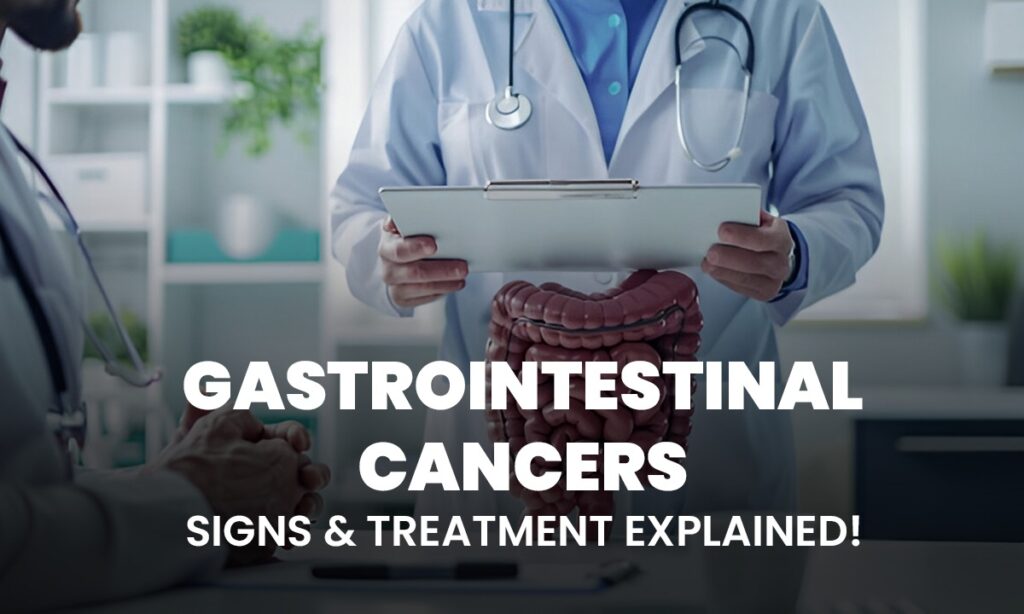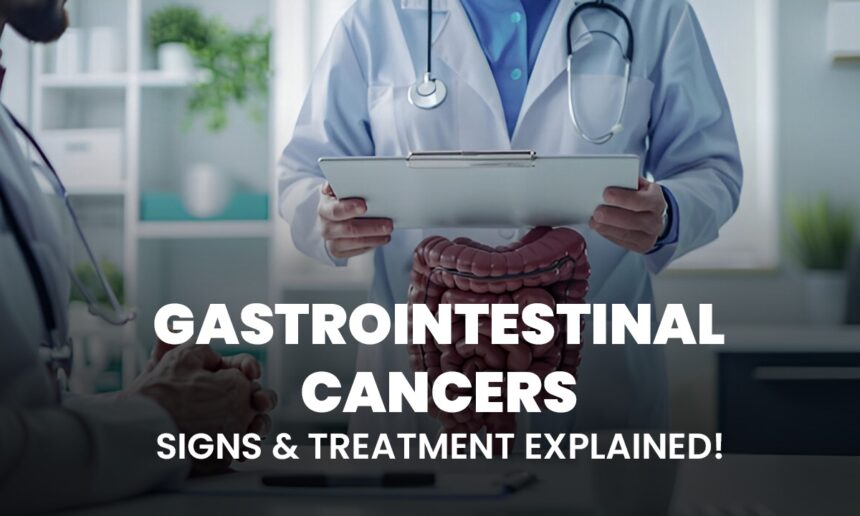
Cancer can be a life-altering diagnosis, and gastrointestinal (GI) cancers are among the most frequent types. They include cancers of the esophagus, stomach, liver, pancreas, colon and rectum. Awareness about the symptoms, ways of diagnosis and possible treatment plans will help the patients and the families to make informed strategic decisions towards their health.
What Are Gastrointestinal Cancers?
GI cancers are cancers that form in the GI tract. They can be aggressive, but early detection and modern treatment options greatly improve survival rates. Besides, guidance from a doctor such as a cancer specialist in managing and treating these cancers is important.
Common Types of GI Cancers
- Esophageal Cancer
Esophageal cancer is a cancer of the tube that connects the throat to the stomach. It is often associated with chronic acid reflux and smoking.
- Stomach (Gastric) Cancer
Stomach cancer usually grows slowly over several years. Risk factors include infection with Helicobacter pylori, a diet high in processed foods and smoking.
- Liver Cancer
These types have been linked to hepatitis infections and heavy alcohol use. It is fast-moving and needs early intervention.
- Pancreatic Cancer
This is one of the hardest cancers to catch early because the symptoms show up so late. It has a high fatality rate, so early detection is key.
- Colorectal Cancer
Colon and rectal cancer are among the most preventable cancers if regular screenings such as colonoscopies are performed. Prevention is largely driven by a high-fiber diet and healthy lifestyle.
Identifying the Signs of GI Cancers
GI cancers can cause different symptoms based on the organ involved, but here are a few red-flag signs to look out for:
- Unexplained weight loss
- Constant abdominal pain or discomfort
- Difficulty swallowing
- Blood in the stool or dark, tarry stools
- Chronic fatigue
- Nausea and vomiting
- Loss of appetite
If you feel any of these signs persistently, you need to see the Best Oncology Doctor in Delhi to get a proper evaluation.
How Are GI Cancers Diagnosed?
Diagnosis is also done early improves the chances of treatment. Doctors use multiple diagnostic tools, including:
- Endoscopy and Biopsy
An endoscope is used to look at the tube from the mouth to the stomach and a biopsy reveals cancer cells.
- Imaging Tests
CT scans, MRIs and PET scans give a close-up view of the affected organs and how far cancer has spread.
- Blood Tests
Some GI cancers (particularly liver and pancreatic) can be indicated by certain biomarkers in the blood.
Modern treatment options for GI cancers
Treatment varies according to cancer type, stage and patient’s overall health. Then a cancer specialist doctor will draft the treatment plan.
- Surgery
When cancer is confined, the most effective way to remove it is by surgery. (Recovery time is also sometimes drastically cut, thanks to minimally invasive techniques.)
- Radiation Therapy
It involves the use of high-energy radiation to shrink tumors and kill cancer cells. This is usually done alongside surgery or chemotherapy.
- Chemotherapy
Chemotherapy drugs also destroy cancer cells and contain their spread. It is typically utilized for advanced GI cancers.
- Targeted Therapy
These are directed at molecules associated with cancer growth, and provide a more targeted treatment with fewer side effects.
- Immunotherapy
Immunotherapy enhances the immune system’s ability to wage war on cancer cells.
Early Detection Is Important, Here Is Why
Screening regularly and living a healthy lifestyle can lower the risk of GI cancers in a significant way. Seeking medical advice from the best oncology doctor in Delhi for persistent digestive issues in you or a loved one ensures early diagnosis and treatment for better treatment outcomes.
Conclusion About the Deadliest GI Cancers Something very challenging, but with advancements in medical science, death rates are decreasing because of early detection. With so many options available, consulting an experienced cancer specialist doctor will help you get the right treatment for your body. Get in touch with one of the best specialist with perfect knowledge and experience to guide you through the process, and offer a range of treatment options that define your perfect health path.

